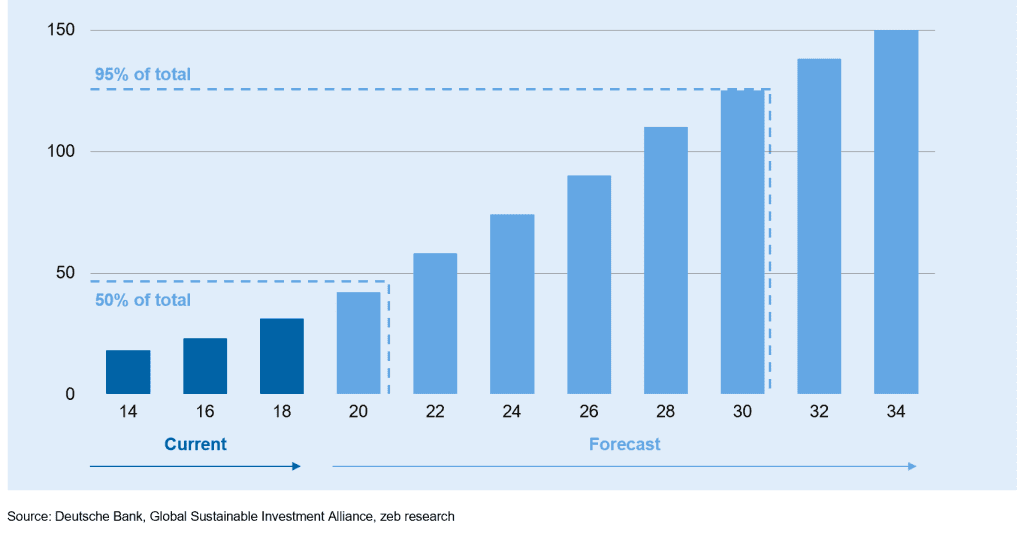Visits: 1
Exploring ESG Investments: Benefits, Risks, and Whether It’s Right for You in 2023
Are you considering ESG investments for your portfolio in 2023? ESG stands for Environmental, Social, and Governance, and these investments focus on companies that prioritize sustainability, social responsibility, and ethical leadership. In this article, we explore the benefits of ESG investing, including potential financial returns and positive impact on society and the environment. However, we also discuss the potential risks and challenges of ESG investing, such as limited diversification and subjective criteria for selecting companies. Ultimately, we provide guidance on whether ESG investing is right for you and your investment goals. Read on to make an informed decision about incorporating ESG investments into your portfolio.
1. What are ESG Investments?
ESG investments are a type of investment strategy that focuses on environmental, social, and governance factors. This means that when investing in ESG funds, investors consider companies’ impact on the environment, their social responsibility, and how well they are governed.
The goal of ESG investing is to promote sustainable and responsible business practices while generating financial returns for investors. Companies that score high on ESG metrics are believed to be better positioned for long-term success, as they are more likely to have strong relationships with stakeholders, lower risks of regulatory fines or lawsuits, and better management practices.
ESG investments can take many forms, including mutual funds, exchange-traded funds (ETFs), and individual stocks. Investors can choose from a wide range of ESG funds, each with its own set of criteria for selecting companies that meet ESG standards.
Overall, ESG investing is becoming increasingly popular among investors who want to align their investments with their values and support companies that prioritize sustainability and social responsibility.
2. The Benefits of ESG Investing
ESG investing has been gaining popularity in recent years, and for good reason. One of the main benefits of ESG investing is that it allows investors to align their investments with their values. By investing in companies that prioritize environmental, social, and governance factors, investors can feel good about supporting businesses that are making a positive impact on the world.
Another benefit of ESG investing is that it can lead to better long-term financial performance. Companies that prioritize ESG factors tend to have more sustainable business practices, which can help them weather economic downturns and other challenges. Additionally, companies that prioritize ESG factors may be more likely to attract and retain top talent, which can lead to greater innovation and growth over time.
ESG investing can also help investors manage risk. By investing in companies that prioritize ESG factors, investors can potentially avoid companies that are more likely to face regulatory or reputational risks. This can help protect their portfolios from potential losses.
Overall, ESG investing offers a range of benefits for investors who are looking to make a positive impact on the world while also achieving their financial goals. However, it’s important to understand the potential risks and challenges associated with ESG investing before making any investment decisions.
3. Potential Risks and Challenges of ESG Investing
While ESG investing can offer many benefits, it’s important to be aware of the potential risks and challenges that come with it. One challenge is the lack of standardization in ESG metrics and ratings. Different providers may use different criteria to evaluate companies, which can lead to inconsistencies in ratings and make it difficult for investors to compare options.
Another risk is the possibility of greenwashing, where companies may exaggerate their ESG efforts or misrepresent their impact on the environment or society. This can make it challenging for investors to identify truly sustainable investments and avoid those that are merely paying lip service to ESG principles.
ESG investing can also be more volatile than traditional investing, as companies that prioritize sustainability may face additional costs or regulatory hurdles. Additionally, some investors may have concerns about sacrificing returns in pursuit of ESG goals.
Finally, it’s worth noting that ESG investing is not a one-size-fits-all solution. Different investors may have different priorities and values when it comes to environmental, social, and governance issues, and it’s important to find investments that align with your personal goals and beliefs.
4. Is ESG Investing Right for You?
When considering whether ESG investing is right for you, it’s important to evaluate your personal values and financial goals. If you prioritize social and environmental responsibility and want your investments to align with those values, then ESG investing may be a good fit. However, if your primary goal is maximizing financial returns, traditional investment strategies may be more suitable.
It’s also important to consider the potential risks and challenges of ESG investing, such as limited diversification and higher fees. Additionally, not all ESG funds are created equal, so it’s important to research and carefully select funds that align with your values and meet your financial goals.
Wrapping Up
Ultimately, the decision to invest in ESG funds should be based on a thorough evaluation of your personal values, financial goals, and risk tolerance. It’s important to consult with a financial advisor and conduct your own research before making any investment decisions.

